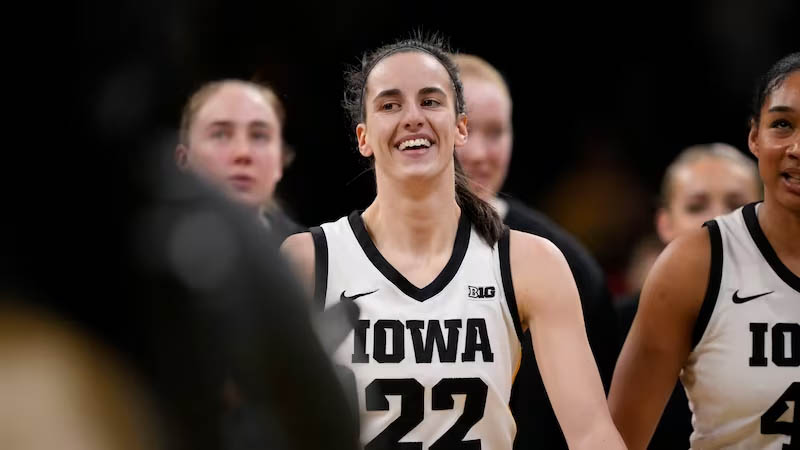As Caitlin Clark approaches another historic milestone in her illustrious basketball career, the spotlight turns to a somewhat forgotten legend, Lynette Woodard, and her monumental scoring record. On January 6, 1981, Woodard, a standout player from Kansas, etched her name in the annals of women’s college basketball by becoming its all-time leading scorer. This remarkable achievement, however, remains overshadowed due to its occurrence before the NCAA officially recognized women’s basketball, during the AIAW era.
The recent buzz around Caitlin Clark breaking Kelsey Plum’s record of 3,527 points has reignited conversations about the true pinnacle of scoring in college basketball. Clark’s pursuit now edges closer to Pete Maravich’s 3,667-point record, but nestled between these figures is Woodard’s impressive tally of 3,649 points—a total Clark is poised to surpass in her upcoming games against Minnesota and Ohio State, given her staggering average of 32.1 points per game.
The narrative surrounding Clark’s achievements inadvertently overlooks Woodard’s legacy, a disservice not only to Woodard and the pioneers of women’s basketball but also to Clark herself. Elizabeth Galloway-McQuitter, President of Legends of the Ball, emphasizes the importance of acknowledging these historical figures to fully appreciate the current achievements and progress within the sport.
Woodard’s story is one of exceptional talent and groundbreaking accomplishments, from her four All-American selections and Olympic gold medal to her pioneering role with the Harlem Globetrotters and her inductions into both the Naismith and Women’s Basketball Halls of Fame. Yet, the NCAA’s failure to recognize AIAW era statistics means Woodard’s scoring record remains unofficial in the current record books.
Legends of the Ball, founded by players from Woodard’s era, including Galloway-McQuitter, aims to shed light on the rich history of women’s basketball, highlighting the significance of the AIAW, Title IX, and the WBL. Their mission is to ensure that trailblazers like Woodard receive the recognition they deserve for their contributions to the sport.
Woodard herself has called for inclusion and acknowledgment from the NCAA, stressing the importance of diversity, equity, and inclusion in honoring the achievements of AIAW players. Her plea underscores a broader issue within sports history—the selective memory that often neglects the foundational figures and moments that have shaped the current landscape.
As Caitlin Clark continues to dazzle fans and break records, the impending surpassing of Woodard’s total serves as a poignant reminder of the interconnectedness of past and present achievements in women’s basketball. Celebrating Clark’s successes also means recognizing and honoring the pioneers like Woodard, whose resilience, talent, and achievements laid the groundwork for today’s stars.


